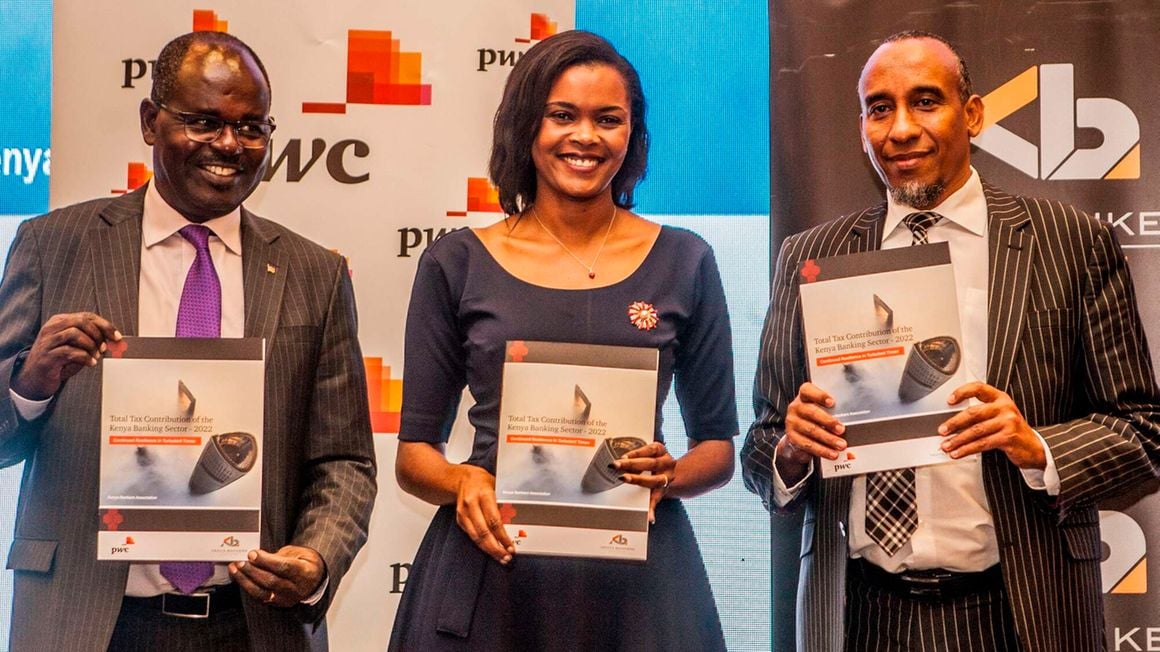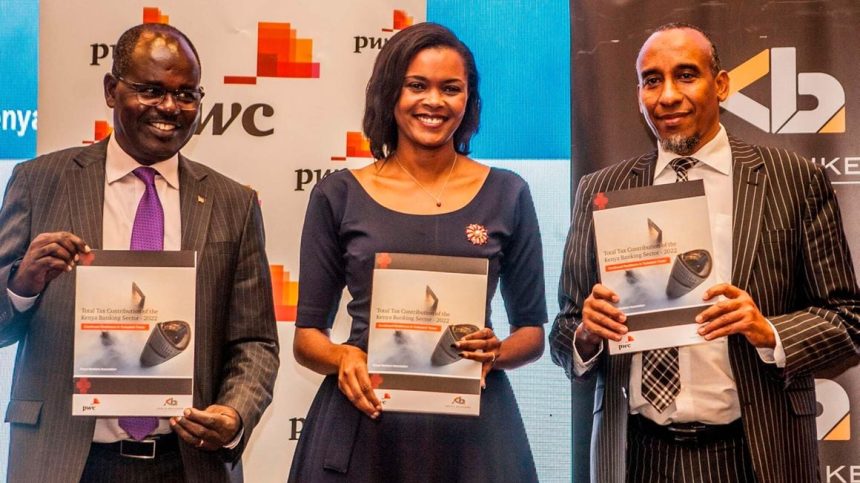The Kenya Revenue Authority (KRA) collected a record Sh181.2 billion from commercial banks last year as the lenders marked their most profitable year yet.
Data from the 2022 Total Tax Contribution of the Kenya Banking Sector, a collaboration between the Kenya Bankers Association (KBA) and consultancy PwC, shows the sector’s total tax contribution rose by 40 percent from Sh129.5 billion previously.
The rise in the sector’s contribution to the exchequer was widely attributed to the growth of taxes aligned to the industry’s profit.
“If you look at 2022, it was really a recovery year for banks and as such, the performance of banks was much improved from the past two years. Banks have also been compliant in meeting their respective tax contributions,” said KBA chief executive Habil Olaka.
Corporate taxes made up the bulk of the industry’s taxes at Sh87.7 billion or a representative 48.39 percent of the sector’s total tax contribution.
Withholding and VAT taxes amounted to Sh26.5 billion and Sh23 billion respectively.
Collections from excise duty rose by 60 percent to Sh22.9 billion from Sh14.3 billion from increased fees and commissions by banks in the period.

Over five years, the banking sector’s total tax contribution has nearly doubled, having grown from Sh99.1 billion in 2018.
Other taxes collected from the industry include irrecoverable VAT, VAT on imported services and withholding VAT.
They also include stamp duty, capital gains taxes and employee deductions to the NSSF and NHIF.
Last year, the banking industry marked a 22.4 percent rise in net income to Sh175.4 billion from Sh143.3 billion previously with the sector’s total operating income standing at Sh560.8 billion.
From the record earnings, the banks distributed Sh47.3 billion in combined dividends.
The study on the total tax contribution covered data from 35 banks and four microfinance institutions.



